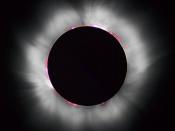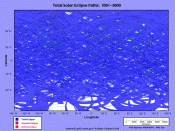Astronomy: Evolution of the Universe.
Ancient Babylonian, Chinese and Greek Astronomy: Shaping how we view today's universe
Astronomy is the scientific study of celestial objects (such as stars, planets, comets, and galaxies) and phenomena that originate outside the Earth's atmosphere (such as the cosmic background radiation). It is associated with the evolution, physics, chemistry, meteorology, and motion of celestial objects, as well as the formation and development of the universe. Early astronomy involved observing the regular patterns of the motions of visible celestial objects, especially the Sun, Moon, stars and planets as viewed from the naked eye. Ancient astronomers were able to differentiate between stars and planets, as stars remain relatively fixed over the centuries while planets will move an appreciable amount during a comparatively short time. This essay will examine the astronomy of three ancient civilizations: Chinese, Babylonian and Greek, while also outlining the some of the key discoveries that were made in these specific eras.
The ancient and primitive cosmologies of Babylonia date back to around 4000BC, and although the Babylonians knew the periods of the sun, moon, and planets, their cosmology dealt primarily with the Earth's place in the cosmos, and, in particular, the space of their small territory lying between the Tigris and the Euphrates Rivers on the shores of the Persian Gulf. Their system of government was based on the worship of many different gods and each one was assigned a specific mantra eg god of the harvest, god of good health, fertility etc. Because these gods "acted" in accordance with very definite laws that governed their actions, it could be said that the Babylonians believed in a well-ordered universe. "Each god controlled a different path to the heavens, the earth, the air, and the seas". (Moltz, L., & Weaver, J. 1995). Babylonian astronomy is...


